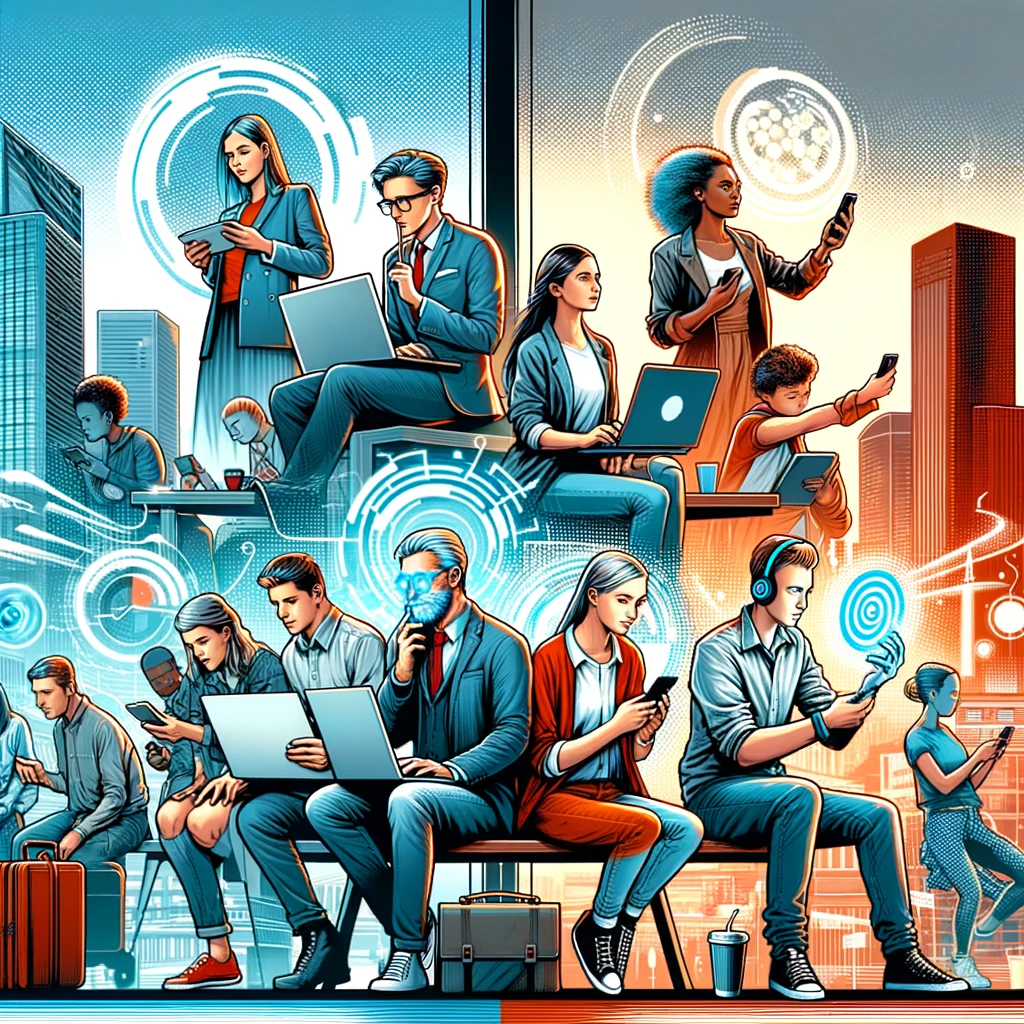
Millennials and Generation Z are often discussed together in media and social discourse, reflecting their adjacency in age and their pivotal roles in shaping contemporary culture and technology. However, it’s crucial to understand that while they share commonalities, Millennials and Generation Z are distinctly separate generations, each with its own unique traits and experiences.

Millennials, born approximately from 1981 to 1996, came of age during the rise of the internet, social media, and mobile technology, but they also remember a world that was less digitally connected. Their formative years were shaped by events like the end of the Cold War, the 9/11 attacks, and the globalization surge that marked the late 20th and early 21st centuries. Economically, many Millennials were particularly affected by the 2008 financial crisis just as they were entering the job market, which has had long-lasting effects on their careers and financial outlook.
In contrast, Generation Z, born from the mid-1990s to the early 2010s, has never known a world without the internet or mobile phones. This generation is the first true group of digital natives, and this has deeply influenced their modes of communication, learning, and entertainment. Gen Z has grown up amidst global warming awareness, the rise of populist politics, and major technological advances like smartphones and social media platforms, which have become integral parts of their lives from a younger age.
When it comes to technology, both generations are proficient, but Gen Z has a more ingrained relationship with digital technology, using it seamlessly for both social interaction and education. Millennials, meanwhile, witnessed the evolution and societal integration of these technologies, which gives them a unique perspective on both online and offline worlds.
Culturally, Millennials are known for being the bridge between the Gen Xers and Gen Z. They adapted quickly to new media and technology, paving the way for the seamless digital consumption that characterizes Gen Z. However, Millennials often lean towards valuing experiences such as travel and dining out, influenced by the economic boom of the 1990s and early 2000s before the financial crash.
Generation Z tends to be more pragmatic and financially conservative than Millennials, likely influenced by observing the struggles Millennials faced during economic downturns. Gen Z’s outlook is also heavily shaped by the immediate threats of climate change and global instability, making them more attuned to issues of environmental and social justice from a younger age.
The political and social views of both generations tend to be more progressive than those of previous generations. Millennials were the first to champion the acceptance and rights of LGBTQ+ communities broadly, and Gen Z has taken up that mantle and expanded it to include a broader spectrum of social justice issues, often utilizing social media to effect change.
In the workplace, both generations seek meaningful and flexible work experiences but may express different priorities. Millennials value collaboration and are known for favoring companies that offer a strong work-life balance and a positive culture. Gen Z, having witnessed the rise of gig economies and remote work trends, places even greater emphasis on flexibility, as well as diversity and inclusion in their professional environments.
Understanding these nuances is crucial for comprehending the social, economic, and cultural landscapes shaped by these two influential generations. While Millennials and Gen Z share some overlapping concerns and preferences, their distinct experiences and the times in which they were raised have fostered different outlooks and priorities, marking them as separate generations with unique identities.